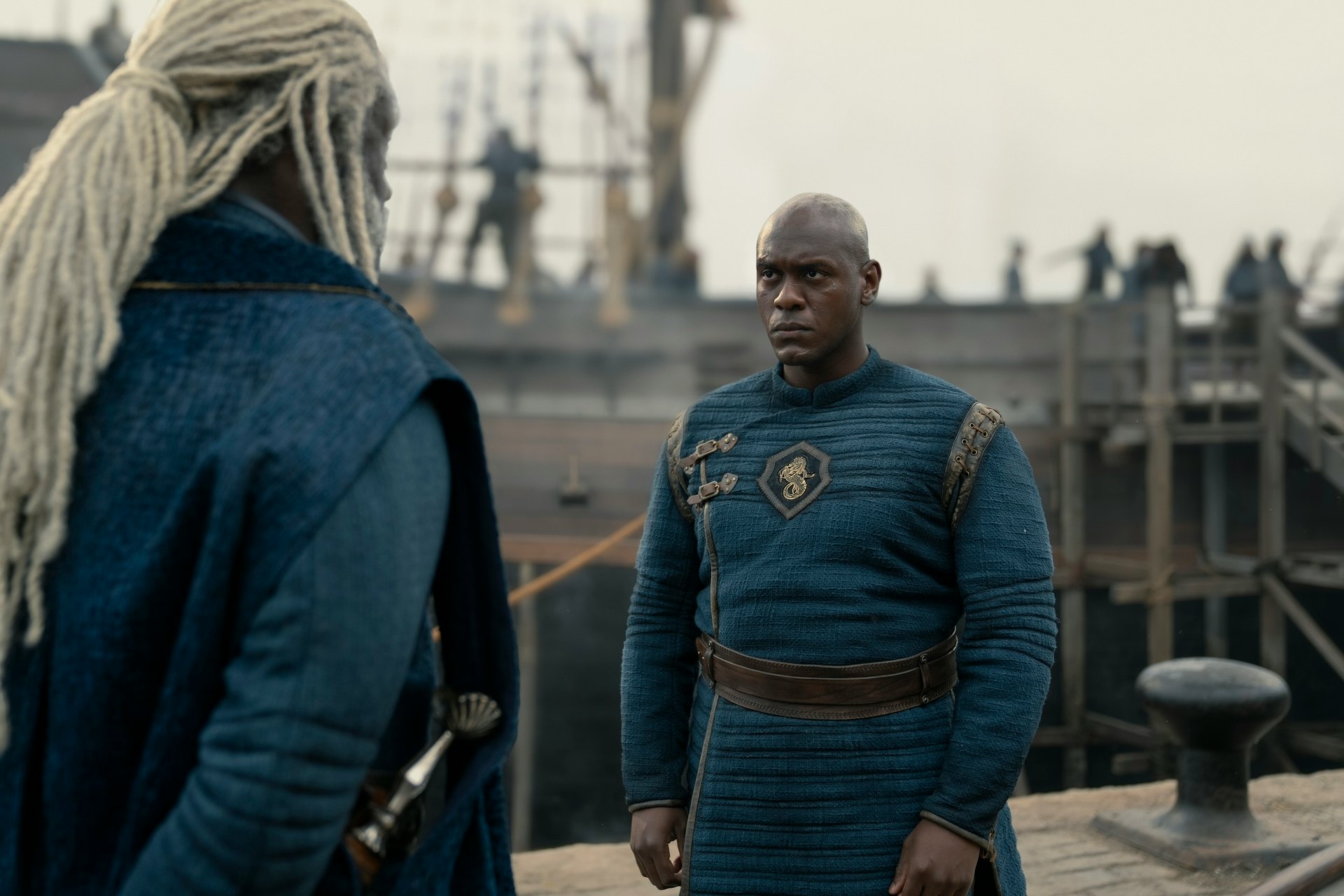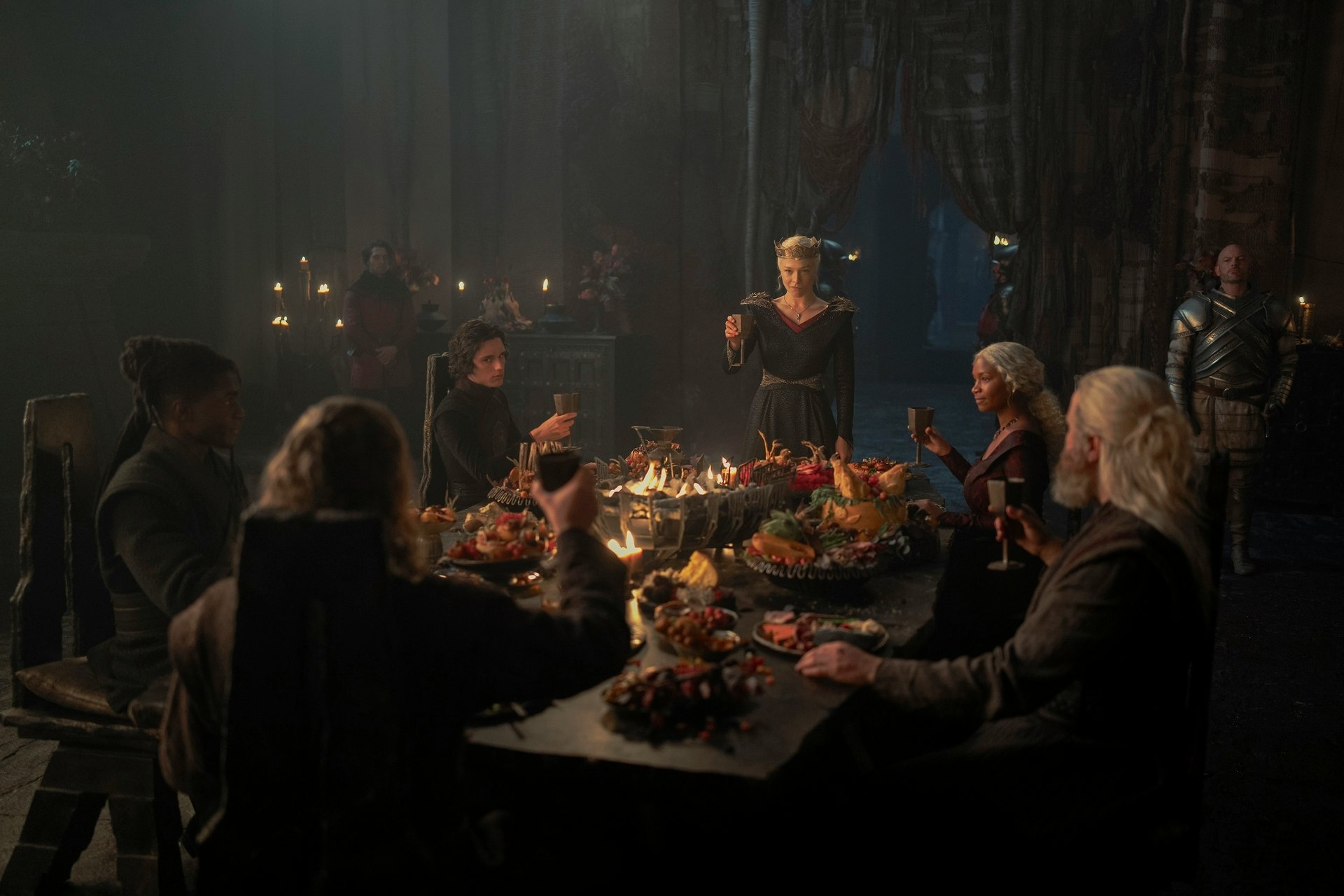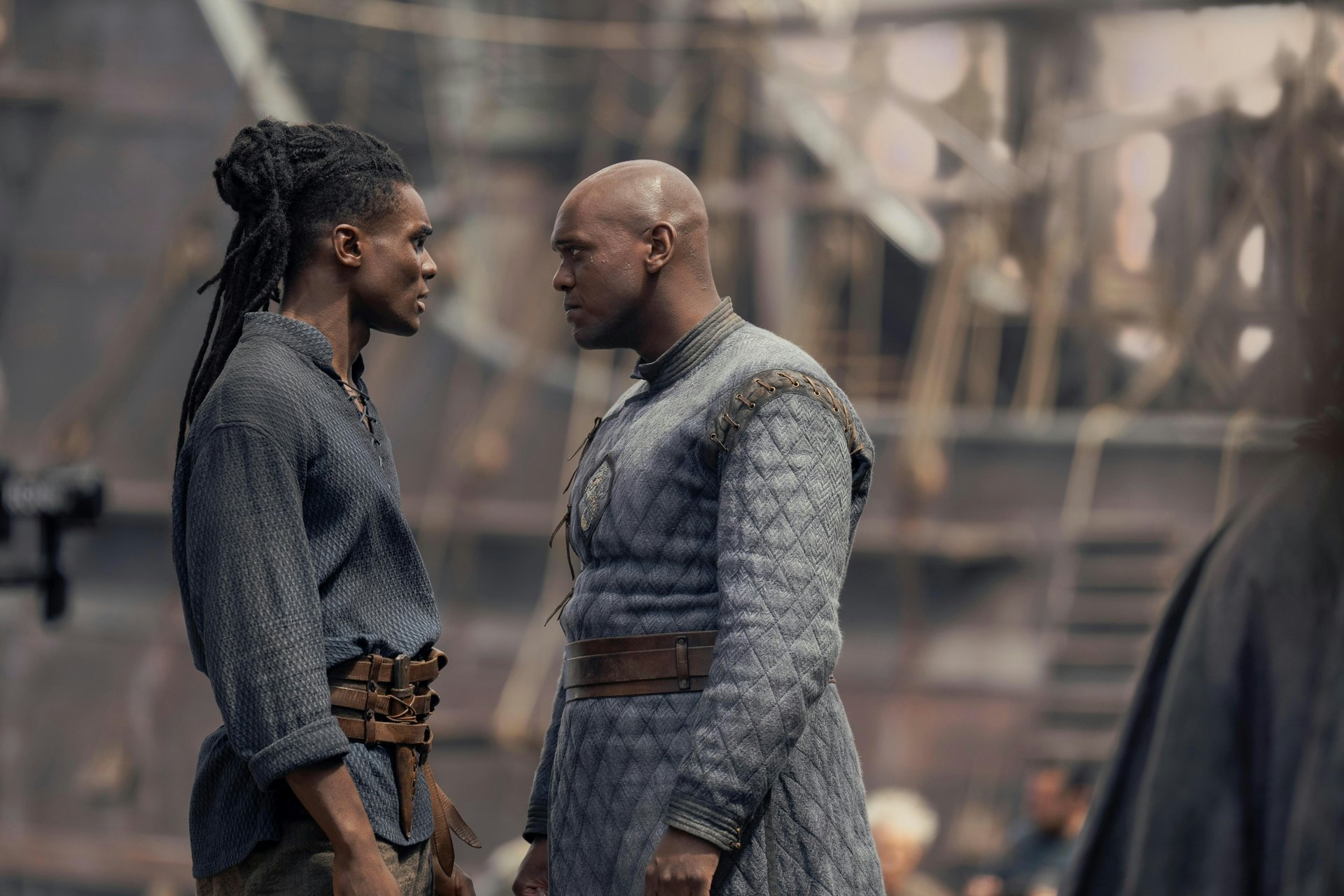
Good intentions don’t always make for great television, and House of the Dragon has proven this point on a few occasions. The HBO series is quite the departure from its predecessor, Game of Thrones: rather than giving the people what they want outright (violence and war and dragons!), House of the Dragon is all about the quiet moments and fractured relationships that caused war in the first place. That attention to detail has created one of the most thoughtful shows on television, one that explores gender roles and more through a fresh lens.
When it comes to its half-baked ideas about race and inclusion, however, House of the Dragon is still slightly behind the curve — but Season 2 shifts its focus in a major way, and finally gives a big franchise blindspot its due.
The Thrones-verse has always been challenged by authentic diversity. Despite having a whole medieval fantasy world to play in, Game of Thrones chose to focus almost exclusively on white, European characters. House of the Dragon doesn’t completely reset that status quo, but it does find a loophole in House Velaryon, a sister-house to the Targaryens. The Velaryons are the first great house we’ve seen populated by Black nobles, a casting choice that definitely made waves among viewers, but didn’t factor much in the events of Season 1.
It also didn’t help that House of the Dragon’s first season picked off the Velaryons one by one, leaving Corlys alone and searching desperately for a new heir. In Season 2, however, the series makes up for any hurt feelings, strengthening the Velaryon ranks and setting the stage for some truly interesting identity politics in Season 3.

The scope of House of the Dragon gets a bit bigger with the concept of dragonseeds, Targaryen bastards scattered throughout the realm. Season 2 focuses on a chosen few, with a particular focus on Alyn of Hull (Abubakar Salim), his brother Addam (Clinton Liberty), and their alleged dad, Corlys himself. The trio don’t share many scenes this season, and their relationship isn’t outright confirmed until the finale, but Episode 8 gets major points for addressing their thorny past.
When Addam claims a dragon of his own, proving his Valerian ancestry, Corlys is inspired to get his affairs in order. He attempts to build a rapport with Alyn, who’s set to serve as first mate on his newly-christened ship. Alyn doesn’t take any of his fatherly advice well, and rightly so, as Corlys notably ignored his two bastards for decades. But now that he’s lost his entire family — his wife Rhaenys (Eve Best), his two noble-born children, and the grandson he’d named as his heir — he has no one else to really turn to.
For Alyn, of course, it’s way too little, too late. “Do you know what it was like for us?” he asks Corlys. “To grow up fatherless? To be sneered upon as bastards?” He recalls a time when he encountered Corlys and his son Laenor, noting their riches while Alyn had to work to keep his family alive. “Now that boy is dead, and his sister before him, and the heir that took his place. And now you remember I live?”

There’s something to be said for Corlys’ priorities. It, of course, makes total sense that he would refuse to acknowledge his illegitimate kids: that’s par the course for any high-born figure. That he consistently sought out heirs on the Targaryen side of the family tree — from his son to his grandson and recently his grandaughter Baela (Bethany Antonia) — inadvertently addresses an issue that the Thrones-verse has never touched: white privilege in multiracial characters.
In the world of Thrones, racism and colorism don’t really exist. That means that white privilege doesn’t really exist here, nor does a pressure to “pass” as white. Corlys’ official heirs were legitimate because they were half-Targaryen, not half-white; Alyn and Addam are bastards because of their lower birth. But it’s impossible to ignore the parallels between two darker-skinned “bastards” and two multiracial heirs. It’s an especially potent metaphor compared to Rhaenyra’s heirs, who are actually bastards themselves but more or less accepted as the sons of Laenor Velaryon (John Macmillan). The emergence of dragonseeds like Alyn and Addam are positioned as a threat to Rhaenyra’s son Jace (Harry Collett), and ironically serve as a reminder of all that he is not.
With one line of dialogue, House of the Dragon reframes a discussion around race and privilege through the lens of Targaryen exceptionalism. Like the rest of the series, the dynamics here are thorny and dense, but well worth exploring — especially after years of relative radio silence. As the Dance of the Dragons begins and Alyn and Addam become indispensable, things can only get more complicated. It’s taken years for House of the Dragon to find a purpose for the Velaryons, but future seasons of the series are set to capitalize on their true potential.






